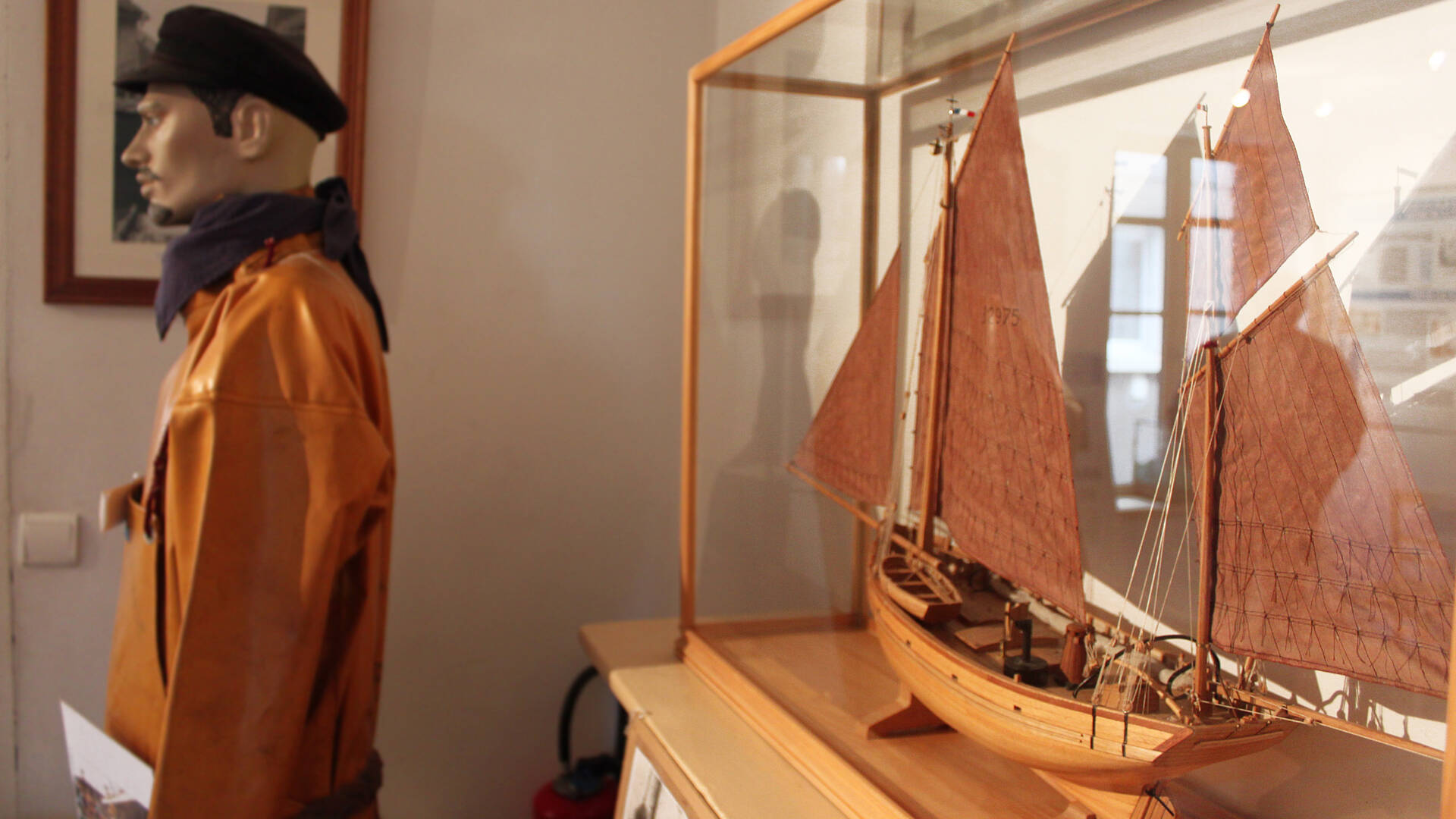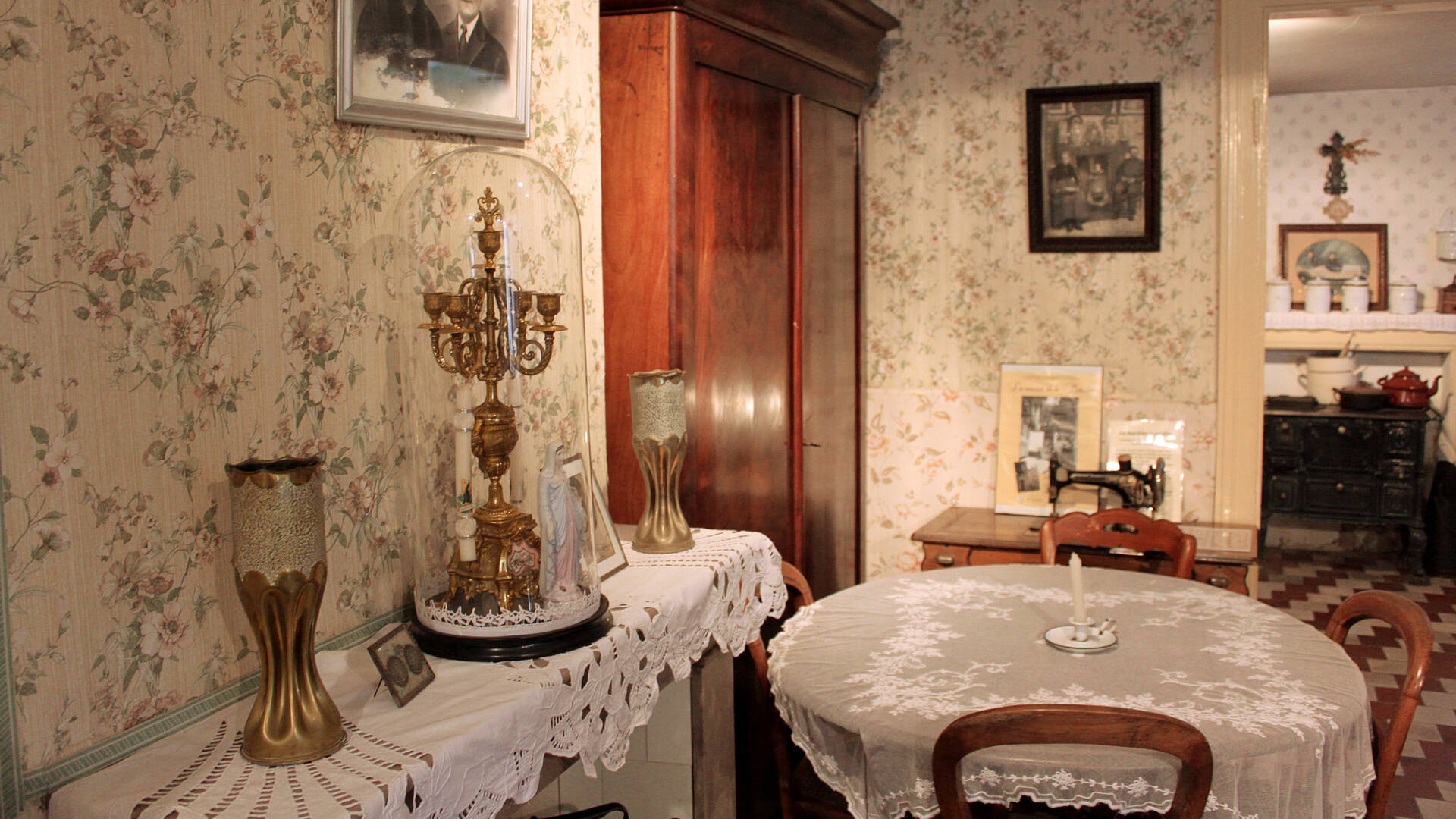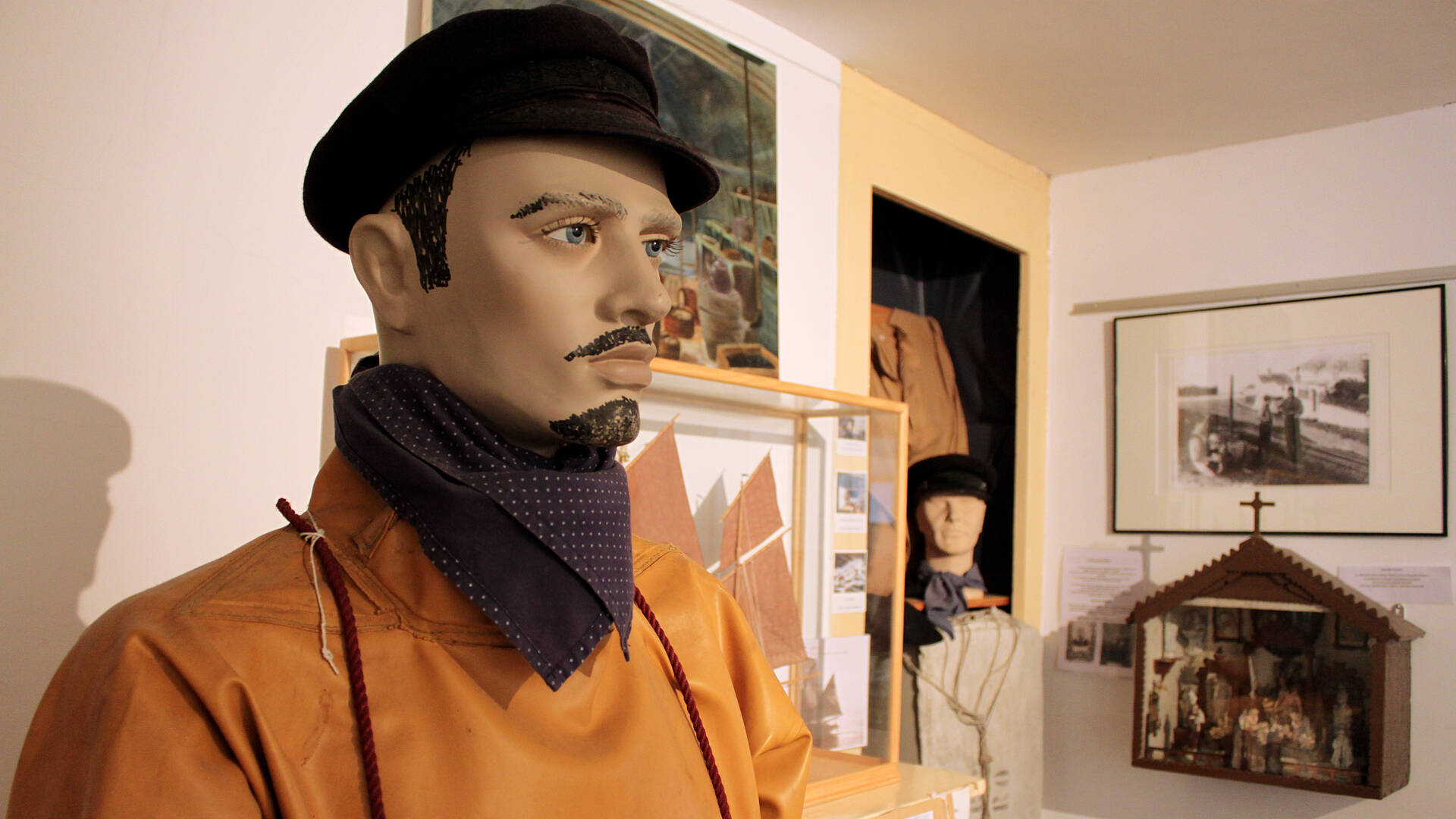An exciting and moving experience
The Beurière House is not to be missed... You have to climb up a few steps of the traditional Mâchicoulis staircase street in order to enter this humble abode. However, the effort is well worth it. Once inside, you understand why the people of Boulogne speak with the same passion and fervour as their forefathers. You understand why the festivals and maritime traditions are still so vibrant and so precious here. And you understand why fishing will always be part of Boulogne-sur-Mer’s DNA.
The fishermen's quarter.
La Beurière is the name given to this crowded district where the fishing community of Boulogne-sur-Mer lived right up to the Second World War. The name is derived from ‘bure’ which describes a ‘small fisherman’s hut’ in the local dialect. About ten thousand of them boarded for Iceland and for Newfoundland here just a few metres from home. It was a perilous journey that could sometimes last several months.
Extreme simplicity
The Beurière House was built in 1870 and is an example of a typical house for a fisherman’s family at the start of the 1900s. The furniture, kitchen, household linen and various items collected over time show the harshness and simplicity of daily life for these men and women whose living was made from the sea.
An ode to the family
It is the whole family, and not just the fishermen, who are celebrated. The women, wives and mothers played a central role in the lives of sailors and fishermen. They prayed that their husbands would return home safely, worked on the quay preparing the nets or in the salting factories, looked after the children's education and ran the household with an iron fist. They worked very hard.
A comprehensive portrait
This museum of the community also has a surprising number of historical documents and items collected from veterans in the district. These include photos, engravings, books, magazines, films, maps and clothing from the era which all build up a comprehensive portrait of the life of a fisherman from Boulogne, together with his port, his way of life, his work and his language. It is a place full of emotion which makes you reflect on our own way of life.






